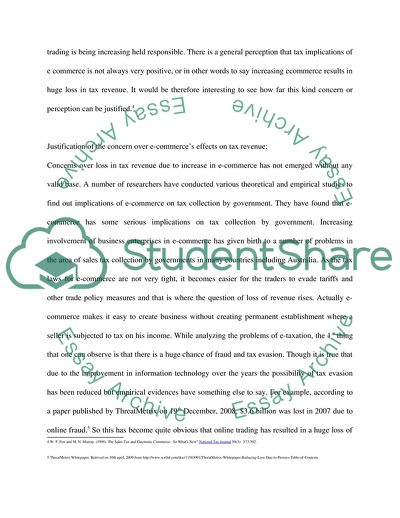Cite this document
(Justification of the Concern over E-Commerces Effects on Tax Revenue Coursework - 8, n.d.)
Justification of the Concern over E-Commerces Effects on Tax Revenue Coursework - 8. https://studentshare.org/finance-accounting/1722994-taxation
Justification of the Concern over E-Commerces Effects on Tax Revenue Coursework - 8. https://studentshare.org/finance-accounting/1722994-taxation
(Justification of the Concern over E-Commerces Effects on Tax Revenue Coursework - 8)
Justification of the Concern over E-Commerces Effects on Tax Revenue Coursework - 8. https://studentshare.org/finance-accounting/1722994-taxation.
Justification of the Concern over E-Commerces Effects on Tax Revenue Coursework - 8. https://studentshare.org/finance-accounting/1722994-taxation.
“Justification of the Concern over E-Commerces Effects on Tax Revenue Coursework - 8”. https://studentshare.org/finance-accounting/1722994-taxation.


